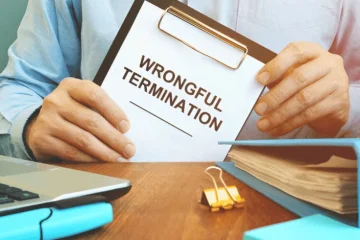Understanding the Judgment Collection Process: From Court Order to Cash

Winning a lawsuit can feel like a major victory—but if the other party refuses to pay, you may quickly realize that obtaining a court judgment is just step one. Turning that judgment into actual money is a separate—and often difficult—process known as judgment collection.
If you’re wondering how to go from a piece of paper to a payment in hand, this blog will walk you through the judgment collection process and explain how a qualified judgment collection attorney can help you navigate each step efficiently and legally.
What Is a Judgment?
When a court rules in your favor in a civil lawsuit, it issues a judgment, which is a formal order declaring that the other party (the debtor) owes you a specific amount of money. The judgment may include:
- The original amount owed
- Interest
- Attorney’s fees
- Court costs
Unfortunately, the court won’t collect the money for you—that responsibility falls on you as the judgment creditor.
Step 1: Confirm the Judgment
After the judgment is entered:
- Make sure it’s finalized and not subject to appeal.
- Obtain a certified copy of the judgment from the court.
- Check if the judgment has an expiration date. In most states, judgments are valid for several years and can often be renewed.
Step 2: Demand Payment
Before moving to enforcement, it’s common to send a formal demand letter to the debtor. This letter typically includes:
- A copy of the judgment
- The amount owed (with interest)
- A deadline for payment
- A warning of further legal action if payment is not made
Sometimes this step is enough to prompt voluntary compliance, especially if the debtor wants to avoid wage garnishment, liens, or credit damage.
Step 3: Identify the Debtor’s Assets
If the debtor doesn’t pay voluntarily, the next step is to locate their assets. A judgment collection attorney can help with this by using:
- Skip tracing to locate a debtor who has moved or is avoiding contact
- Public records searches to find real estate, vehicles, or business interests
- Post-judgment discovery (legal tools like subpoenas, interrogatories, and depositions) to compel the debtor to disclose financial information
Step 4: Enforce the Judgment
Once you identify collectible assets, your attorney can initiate legal enforcement actions, such as:
1. Wage Garnishment
If the debtor is employed, you can ask the court to order their employer to withhold a portion of their paycheck until the judgment is paid.
2. Bank Levies
You may be able to freeze and seize funds directly from the debtor’s bank account. This typically requires a court order and may come as a surprise to the debtor.
3. Property Liens
A lien can be placed on the debtor’s home, land, or other property. If they try to sell or refinance it, you may be entitled to proceeds from the sale.
4. Asset Seizure
In some cases, the court may allow the seizure of personal property (vehicles, valuable equipment, etc.) to satisfy the judgment.
Step 5: Monitor and Renew
If the debtor still doesn’t pay in full, your judgment collection attorney will continue to monitor their financial situation. Many debts are not collectible immediately, but people’s financial situations can change.
In most states:
- Judgments can be renewed before they expire (commonly every 7–10 years).
- Interest continues to accrue, increasing the amount owed.
- Periodic follow-up can increase your chances of eventual collection.
Why Use a Judgment Collection Attorney?
Trying to enforce a judgment on your own can be frustrating, confusing, and time-consuming. A skilled judgment collection attorney brings:
- Legal knowledge of your state’s enforcement rules
- Access to tools like subpoenas and discovery motions
- Experience with evasive debtors and complex asset structures
- Courtroom experience for post-judgment hearings or motions
They can handle the heavy lifting while protecting your rights and increasing the odds of a successful recovery.
Conclusion
Winning a lawsuit is only part of the journey. The real victory comes when you successfully collect the money you’re owed. The judgment collection process is full of legal nuances, and having a professional on your side can make all the difference.
If you’re struggling to enforce a judgment or simply don’t know where to start, don’t wait. Reach out to a judgment collection attorney today to begin turning your court victory into actual cash in hand. We recommend Judgement Collection Attorney.










